In healthcare technology, numerous advancements have not just broadened medical treatment options but have also digitally revamped both operational and clinical processes. With enhanced technology and cost-effective medical solutions, healthcare entities need to optimize their internal information flow for efficient care – and this is where ERP in healthcare becomes crucial.
Business with Our
ERP Solutions. Trusted by healthcare providers in
over 20 countries for specialized
ERP services.

The widespread acceptance of healthcare ERP software solutions can be attributed to their robust features, ensuring high-quality patient care at reduced operational costs. Functioning on business process management software, ERP for hospitals facilitates the integration of various operational aspects into a unified database, user interface, and application.
The global Enterprise Resource Planning solutions market is projected to exceed $100.7 billion by 2025. Notably, when compared to other IT healthcare solutions like medical app development, hardware devices, and data care systems, ERP solutions demonstrate a more consistent growth pattern, indicating a sustained high demand.
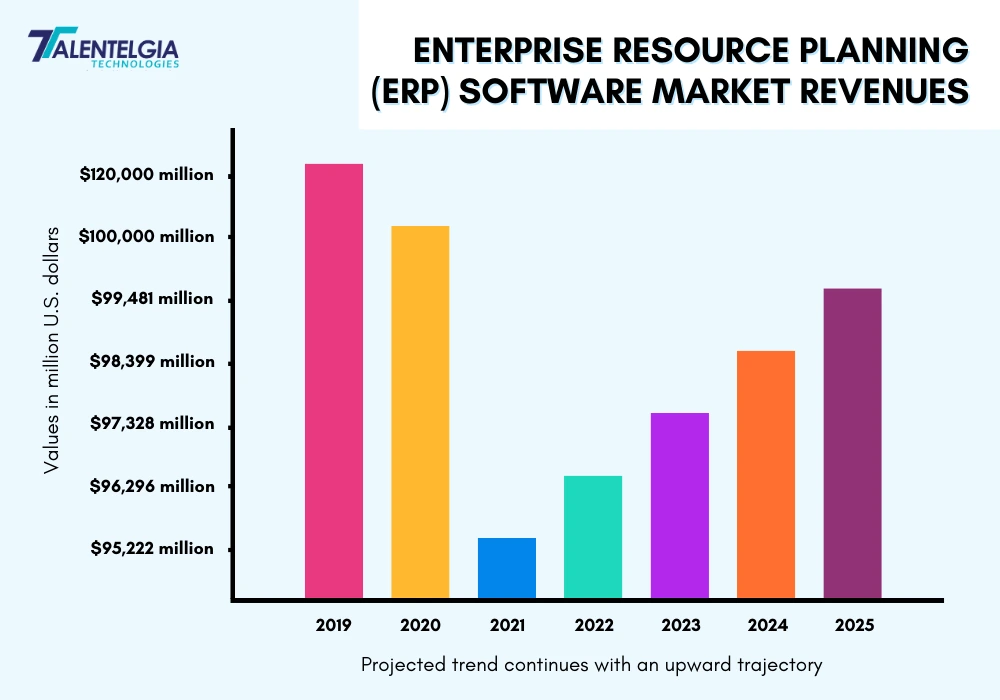
If you’ve decided to undergo digital transformation for your healthcare business, it’s time to implement healthcare ERP solutions to drive process innovation. Explore the ERP business needs for healthcare, along with the use cases and Benefits of ERP in healthcare business.
Let’s get started!
What is an ERP System in Healthcare?
Enterprise Resource Planning (ERP) systems are software solutions with modules tailored for data monitoring and enhanced communication across various departments.
In addition, ERP healthcare solutions assist businesses in automating operations, eliminating data silos, optimizing information flow, and facilitating informed decision-making. Now, let’s explore the reasons why integrating ERP system solutions is essential for your business.
Role of ERP Systems in the Healthcare Industry
Implementing ERP in healthcare proves advantageous for managing essential business processes like HR, finances, customer relationships, and inventory. Healthcare organizations commonly face the challenge of achieving two key goals:
- Providing high-quality care to patients
- Delivering quality care at a reduced cost
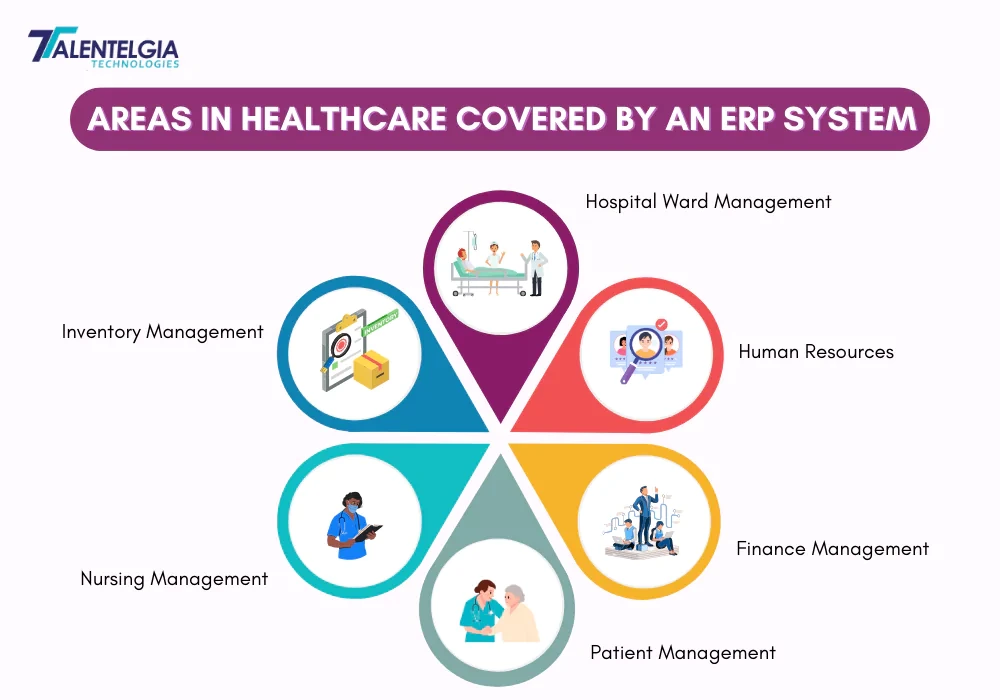
This dual objective drives the continual need for upgrading ERP systems within medical institutions to enhance the accessibility of patient care. The pivotal role of ERP in hospital management systems revolves around eradicating clinical errors, enhancing operations, and fostering productivity through aligned data analytics.
Furthermore, ERP facilitates medical businesses by addressing real-time patient needs, offering access to crucial data, and generating test reports for optimal outcomes. A significant benefit of ERP in healthcare lies in streamlining various diagnostic systems, electronic medical records, and patient communication systems.
To delve into specific details, let’s explore a comprehensive overview of the advantages that ERP brings to the healthcare sector.
Top Benefits of ERP in Healthcare Industry
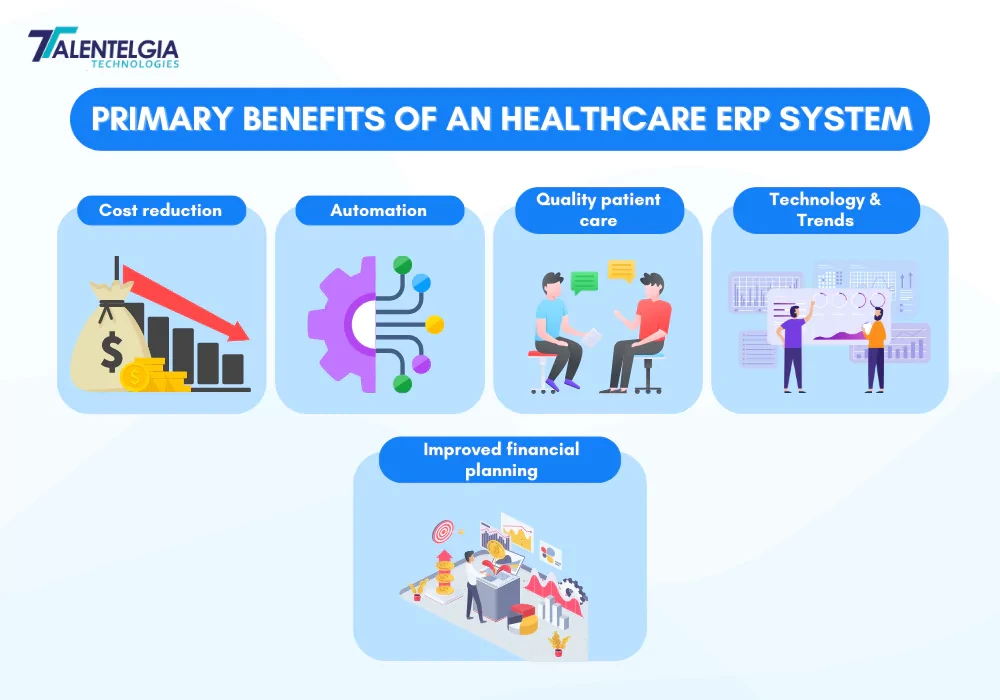
In healthcare operations, the necessity for an ERP solution goes beyond mere clinical and administrative requirements. Achieving excellence in care, both internally and externally, while maintaining cost control, improving outcomes, and ensuring efficient performance, underscores the sustainability of ERP solutions in the healthcare sector. What’s more?
Here, we outline the primary Benefits of ERP in healthcare into your operations:
Simplified Access to Medical Records
In the healthcare ecosystem, healthcare staff, patients, and medical professionals must have easy access to medical records when needed. The transition from outdated software systems to automated ERP solutions enables one-click access to critical data, significantly enhancing the overall patient experience. Studies indicate that organizations adopting or updating their ERPs demonstrate distinct productivity gains over others. Post-pandemic, ERPs alleviated the substantial burden of data management in hospitals.
Furthermore, ERP systems facilitate real-time monitoring of vital signs such as oxygen levels, blood pressure, and body temperature, ensuring prompt assistance to patients.
Improved Medical Care with Cloud and E-Storage
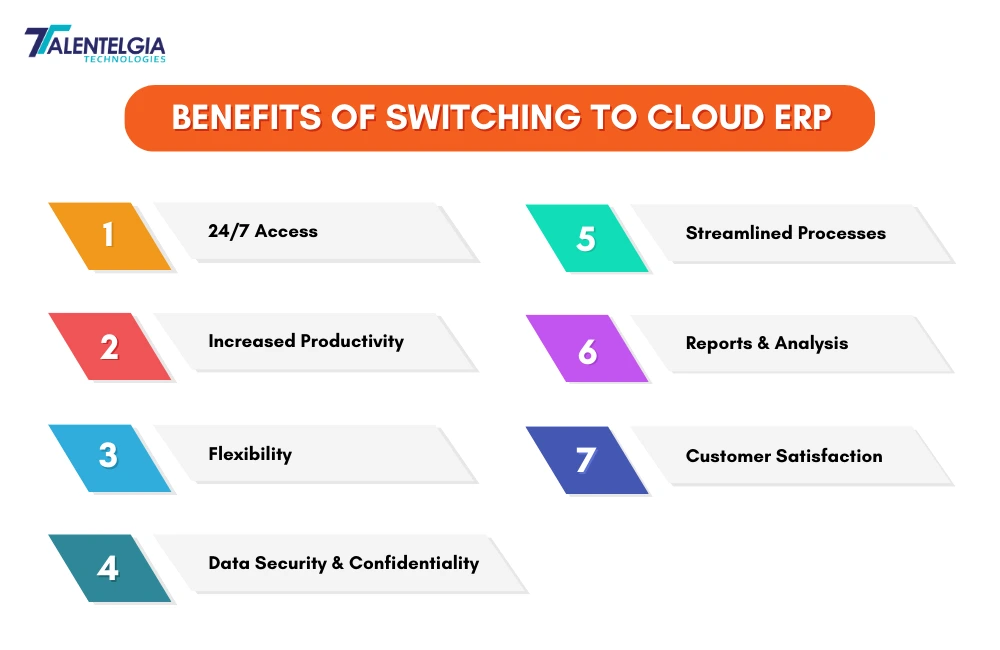
Cloud-based ERP solutions for healthcare provide remote access to updated patient data, allowing healthcare professionals to offer medical advice even when physically distant. Robust ERP systems ensure the availability of critical patient information across various systems.
Business with Our Advanced
ERP Solutions. Trusted by healthcare providers in
over 20 countries for specialized
ERP services.

Reduced Errors and Operational Costs
Efficient financial management is crucial for healthcare businesses. ERP software systems with integrated accounting modules streamline the recording and storage of financial transactions. These systems track expenses, income, and assets, offering comprehensive financial visibility and accounting information. Advanced technologies like AI analytics and machine learning in ERP systems safeguard confidential medical data from security threats.
Business Intelligence (BI) and Strategic Planning
ERP systems serve as invaluable tools for creating foolproof strategic plans and accessing accurate insights. In healthcare, ERP solutions measure institutional performance, providing information on budgeting, patient visits, requisitions, and more. BI tools analyze data to identify areas for improvement, enabling the implementation of effective strategies.
Organization-Wide Integration
Managing hospital operations using multiple solutions and devices can be challenging and expensive. Healthcare ERP systems streamline operations by centralizing data related to financing, human resources, billing, and record-keeping. This centralized approach reduces the complexity of managing various systems and facilitates easy access to information for staff and doctors.
Enhanced Industry Compliance
Healthcare stands as one of the most regulated industries, requiring strict adherence to compliance protocols. Non-compliance can lead to hefty fines, reputational damage, and detrimental consequences for patients. Healthcare ERP plays a pivotal role in ensuring industry compliance by offering secure, transparent, and traceable operations. By avoiding legacy systems and outdated record-keeping methods, healthcare organizations can pass audits seamlessly and proactively upgrade their software systems.
In essence, ERP for healthcare simplifies the retrieval of essential documents, regardless of location, ensuring a secure and compliant operational environment.
Also Read: Which ERP System is Best
How Healthcare ERP Solutions Support Scalability?
According to Gartner’s projection, the conclusion of 2022 will witness a surge in the demand for adaptable and agile product services, emphasizing the significance of elasticity. This proves especially advantageous for the healthcare sector, given that over 75% of enterprise technology and service purchases prioritize adaptability.
In healthcare, adaptability holds paramount importance, particularly with evolving federal and state regulations shaping the modern age of care.
Another critical aspect is the ever-changing landscape of reimbursement rates and regulations, necessitating software and systems capable of seamlessly integrating with your medical processes while maintaining accuracy.
Historically, the healthcare industry grappled with inefficiencies in technical procedures and quality care, resulting in inaccurate operational data, susceptibility to security breaches, and a dearth of insights across platforms.
The comprehensive solution to address these challenges is ERP for healthcare. Tailored to alleviate operational burdens, ERP solutions facilitate smoother workflows, increased revenue, and enhanced predictability for you and your medical staff.
Furthermore, by integrating ERP into healthcare, your business establishes a robust infrastructure to navigate current and future healthcare trends effectively.
Conclusion
Enterprise Resource Planning (ERP) solutions play a crucial role in streamlining operational processes for healthcare businesses of any scale. The highly adaptable ERP Development Services can help you to align with your specific needs and can be easily expanded as required. We suggest that companies leverage enterprise resource planning technology as a valuable tool to reduce the time dedicated to daily operations, boost revenue, and improve relationships with both customers and vendors.
Here at Talentelgia, we empower companies and their workforce with state-of-the-art transformative solutions and insights driven by data. Within our array of enterprise software development services, you have the flexibility to select the modules and technologies that align with your business requirements.
Are you and your organization prepared to embrace a new perspective and derive maximum benefits from innovations? Consult with our experts to explore the possibility of obtaining an ERP software solution tailored to your needs!


 Healthcare App Development Services
Healthcare App Development Services
 Real Estate Web Development Services
Real Estate Web Development Services
 E-Commerce App Development Services
E-Commerce App Development Services E-Commerce Web Development Services
E-Commerce Web Development Services Blockchain E-commerce Development Company
Blockchain E-commerce Development Company
 Fintech App Development Services
Fintech App Development Services Fintech Web Development
Fintech Web Development Blockchain Fintech Development Company
Blockchain Fintech Development Company
 E-Learning App Development Services
E-Learning App Development Services
 Restaurant App Development Company
Restaurant App Development Company
 Mobile Game Development Company
Mobile Game Development Company
 Travel App Development Company
Travel App Development Company
 Automotive Web Design
Automotive Web Design
 AI Traffic Management System
AI Traffic Management System
 AI Inventory Management Software
AI Inventory Management Software
 AI Software Development
AI Software Development  AI Development Company
AI Development Company  AI App Development Services
AI App Development Services  ChatGPT integration services
ChatGPT integration services  AI Integration Services
AI Integration Services  Generative AI Development Services
Generative AI Development Services  Natural Language Processing Company
Natural Language Processing Company Machine Learning Development
Machine Learning Development  Machine learning consulting services
Machine learning consulting services  Blockchain Development
Blockchain Development  Blockchain Software Development
Blockchain Software Development  Smart Contract Development Company
Smart Contract Development Company  NFT Marketplace Development Services
NFT Marketplace Development Services  Asset Tokenization Company
Asset Tokenization Company DeFi Wallet Development Company
DeFi Wallet Development Company Mobile App Development
Mobile App Development  IOS App Development
IOS App Development  Android App Development
Android App Development  Cross-Platform App Development
Cross-Platform App Development  Augmented Reality (AR) App Development
Augmented Reality (AR) App Development  Virtual Reality (VR) App Development
Virtual Reality (VR) App Development  Web App Development
Web App Development  SaaS App Development
SaaS App Development Flutter
Flutter  React Native
React Native  Swift (IOS)
Swift (IOS)  Kotlin (Android)
Kotlin (Android)  Mean Stack Development
Mean Stack Development  AngularJS Development
AngularJS Development  MongoDB Development
MongoDB Development  Nodejs Development
Nodejs Development  Database Development
Database Development Ruby on Rails Development
Ruby on Rails Development Expressjs Development
Expressjs Development  Full Stack Development
Full Stack Development  Web Development Services
Web Development Services  Laravel Development
Laravel Development  LAMP Development
LAMP Development  Custom PHP Development
Custom PHP Development  .Net Development
.Net Development  User Experience Design Services
User Experience Design Services  User Interface Design Services
User Interface Design Services  Automated Testing
Automated Testing  Manual Testing
Manual Testing  Digital Marketing Services
Digital Marketing Services 
 Ride-Sharing And Taxi Services
Ride-Sharing And Taxi Services Food Delivery Services
Food Delivery Services Grocery Delivery Services
Grocery Delivery Services Transportation And Logistics
Transportation And Logistics Car Wash App
Car Wash App Home Services App
Home Services App ERP Development Services
ERP Development Services CMS Development Services
CMS Development Services LMS Development
LMS Development CRM Development
CRM Development DevOps Development Services
DevOps Development Services AI Business Solutions
AI Business Solutions AI Cloud Solutions
AI Cloud Solutions AI Chatbot Development
AI Chatbot Development API Development
API Development Blockchain Product Development
Blockchain Product Development Cryptocurrency Wallet Development
Cryptocurrency Wallet Development About Talentelgia
About Talentelgia  Our Team
Our Team  Our Culture
Our Culture 
 Healthcare App Development Services
Healthcare App Development Services Real Estate Web Development Services
Real Estate Web Development Services E-Commerce App Development Services
E-Commerce App Development Services E-Commerce Web Development Services
E-Commerce Web Development Services Blockchain E-commerce
Development Company
Blockchain E-commerce
Development Company Fintech App Development Services
Fintech App Development Services Finance Web Development
Finance Web Development Blockchain Fintech
Development Company
Blockchain Fintech
Development Company E-Learning App Development Services
E-Learning App Development Services Restaurant App Development Company
Restaurant App Development Company Mobile Game Development Company
Mobile Game Development Company Travel App Development Company
Travel App Development Company Automotive Web Design
Automotive Web Design AI Traffic Management System
AI Traffic Management System AI Inventory Management Software
AI Inventory Management Software AI Software Development
AI Software Development AI Development Company
AI Development Company ChatGPT integration services
ChatGPT integration services AI Integration Services
AI Integration Services Machine Learning Development
Machine Learning Development Machine learning consulting services
Machine learning consulting services Blockchain Development
Blockchain Development Blockchain Software Development
Blockchain Software Development Smart contract development company
Smart contract development company NFT marketplace development services
NFT marketplace development services IOS App Development
IOS App Development Android App Development
Android App Development Cross-Platform App Development
Cross-Platform App Development Augmented Reality (AR) App
Development
Augmented Reality (AR) App
Development Virtual Reality (VR) App Development
Virtual Reality (VR) App Development Web App Development
Web App Development Flutter
Flutter React
Native
React
Native Swift
(IOS)
Swift
(IOS) Kotlin (Android)
Kotlin (Android) MEAN Stack Development
MEAN Stack Development AngularJS Development
AngularJS Development MongoDB Development
MongoDB Development Nodejs Development
Nodejs Development Database development services
Database development services Ruby on Rails Development services
Ruby on Rails Development services Expressjs Development
Expressjs Development Full Stack Development
Full Stack Development Web Development Services
Web Development Services Laravel Development
Laravel Development LAMP
Development
LAMP
Development Custom PHP Development
Custom PHP Development User Experience Design Services
User Experience Design Services User Interface Design Services
User Interface Design Services Automated Testing
Automated Testing Manual
Testing
Manual
Testing About Talentelgia
About Talentelgia Our Team
Our Team Our Culture
Our Culture
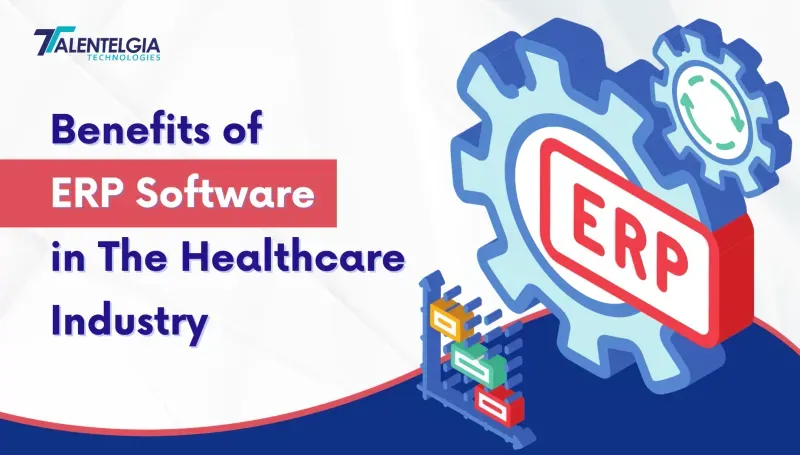

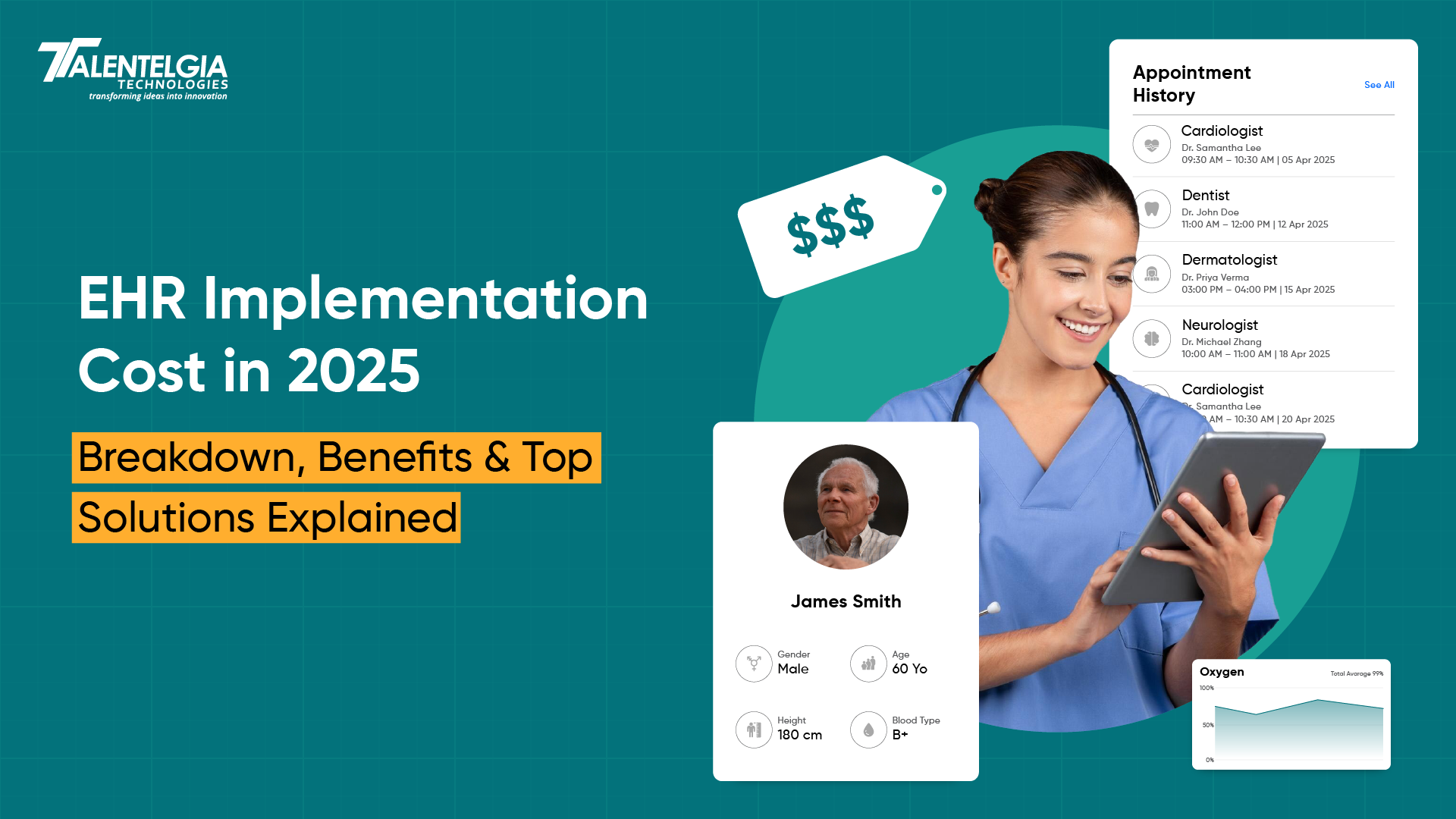


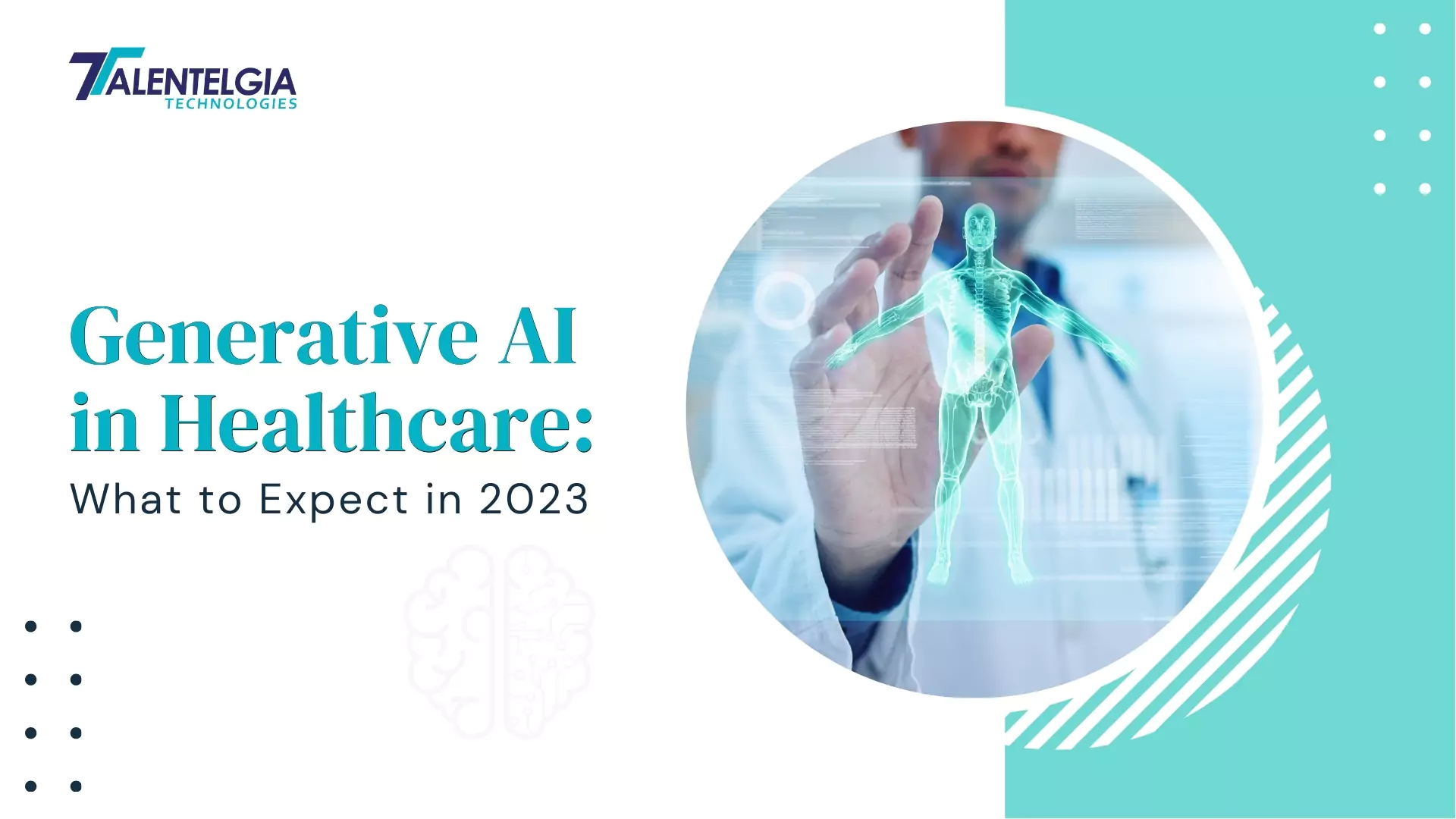











 Write us on:
Write us on:  Business queries:
Business queries:  HR:
HR: 




